How to know how large your puppy will grow.
There's nothing quite like bringing home a tiny puppy —but not all puppies will stay small forever. An important part of being a new puppy owner is knowing the stages of puppy development and how large you can expect your dog to become. And just like with human babies, tracking the growth of your puppy can help you determine if your dog is healthy.
What Factors Impact My Puppy's Size?
While there's no way to predict your puppy's exact size when they're full-grown, certain factors can help you predict your dog's height and weight:
- Breed size: The American Kennel Club breaks down breed sizes into five categories: toy, small, medium, large and giant.
- Gender: As with many other animals, males are typically larger than females.
- Genetics: The size of the puppy's parents and other hereditary factors can affect your puppy's adult size.
How Big Will My Puppy Grow?
The breed of your puppy plays an important role in determining how big they will become.
- Toy-size dogs: It's no surprise that these tiny dogs, including Chihuahuas and Pomeranians, normally weigh less than 12 pounds when they reach their full adult weight typically between 6 and 8 months old. Toy dogs grow more quickly than larger dogs that require more time to develop their bigger bones and joints.
- Small dogs: Small dogs like dachshunds and Jack Russell terriers don't grow as quickly as their toy-size counterparts, but they will grow to full weight - between 12 and 25 pounds - in less than a year. They tend to grow to full adult height within nine months.
- Medium dogs: Small and medium dogs have very similar growth schedules. A medium dog, such as a border collie or Dalmatian, typically reaches their full adult weight of 25 to 50 pounds by the time they are 1 year old.
- Large dogs: If you have a large dog like a golden retriever or German shepherd, don't expect them to stop growing in less than a year. Many large breeds, which weigh in at 50 to 100 pounds, can take 14 to 18 months to reach their full adult weight.
- Giant dogs: Dogs such as Great Danes and Newfoundlands often weigh well over 100 pounds and keep growing for about two years. These dogs typically gain two to three pounds per week, with the larger ones gaining up to five pounds per week.
Puppy Growth Chart
As your puppy grows into a dog, they will go through a number of growth stages. If your puppy is underweight or overweight, speak to your vet to determine if there could be underlying medical problems, such as intestinal worms, hindering your puppy's growth.
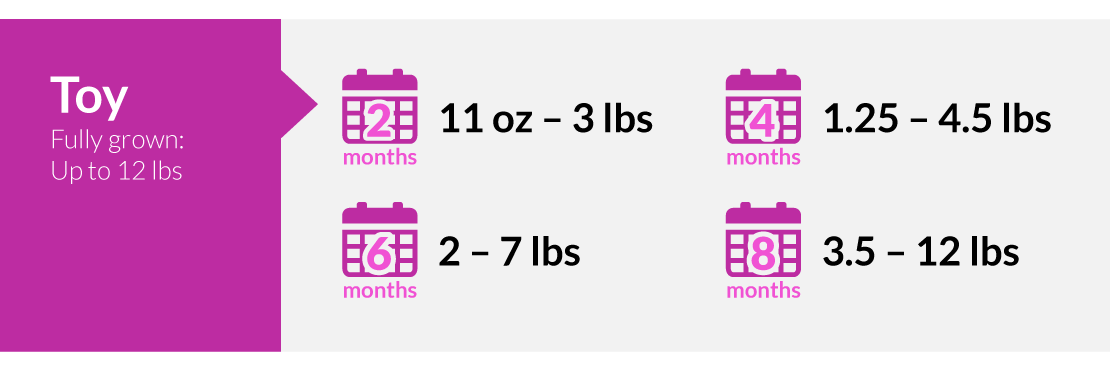
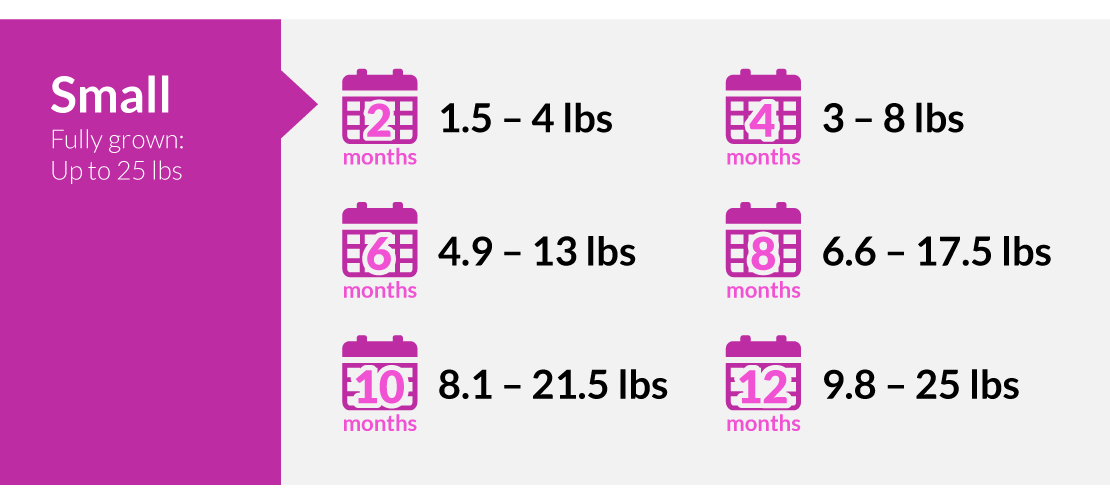
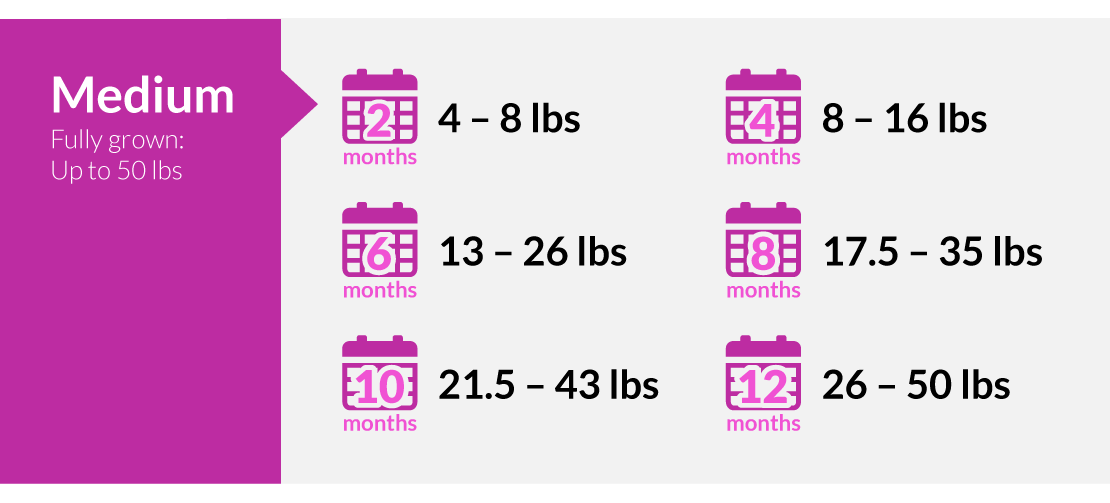
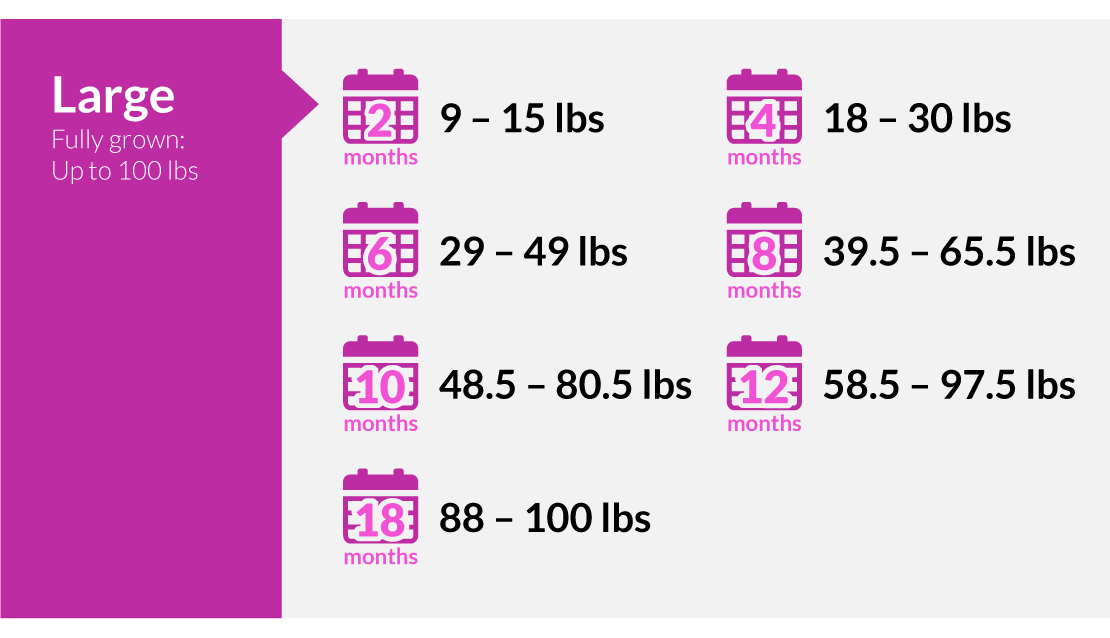
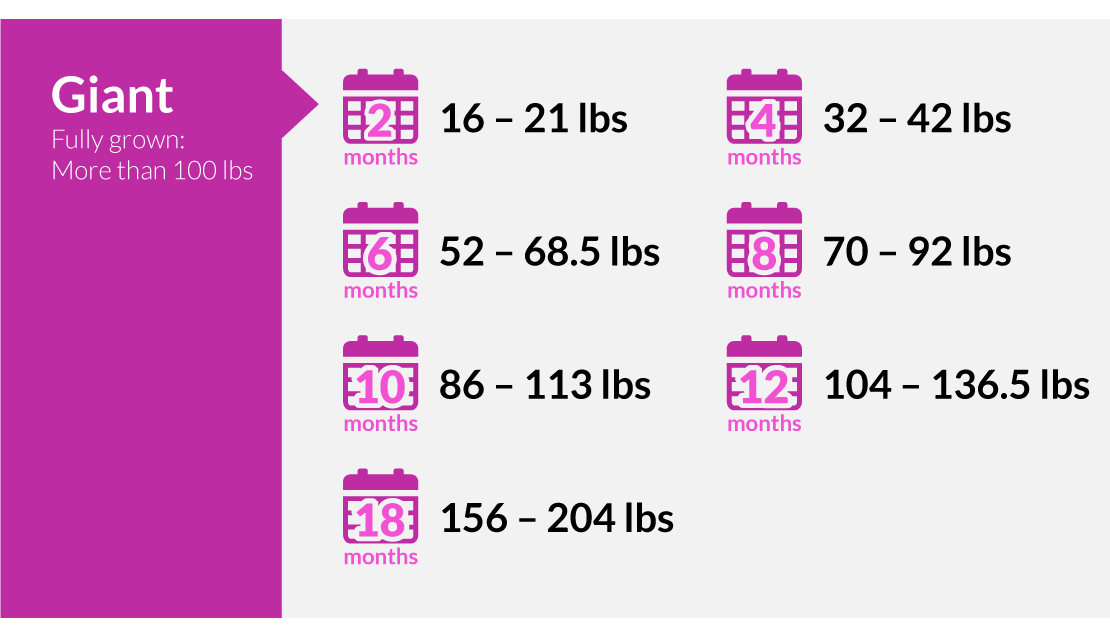
By knowing what to expect in the first 18 months of your puppy's growth and development, you can ensure they stay on track to grow into a healthy, happy adult dog.
Related Articles

Puppy Parenting: Our Downloadable Guide
New puppy? Whether this is your first go-round or your fifth, we know that so much goes in to raising healthy, happy pups. Check out our free guide, also available to download!







